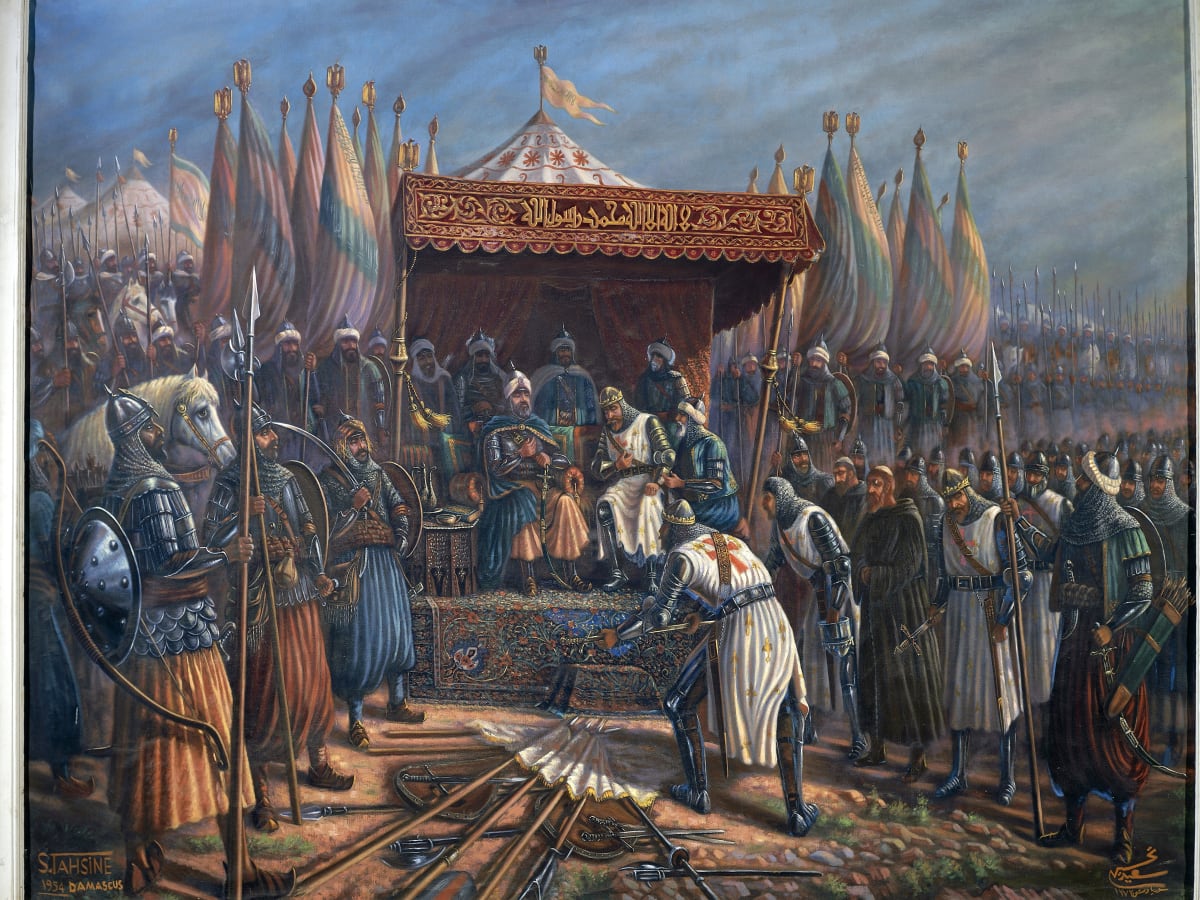The number of crusaders and pilgrims who went to the East and returned home was large. From Marseilles alone the ships of the Hospitalers and the Templars carried six thousand pilgrims a year. Ideas flowed back and forth with the people. Arabic words in Western languages testify to the concepts and products borrowed by the Westerners in commerce: bazaar, tariff the French douane and the Italian dogana (a customs house, from the Arabic diwan, the sofa on which the officials sat); in foods: sugar, saffron, rice, lemon, apricot, shallot, scallion, melon, and pistachio; in manufactured goods: cotton, muslin, damask (from Damascus), and many others.
The new products stimulated the growing commercial life of the West. Venice and Genoa, the ports from which much of the produce of the East was funneled into Europe, prospered exceedingly. So did the cities of Flanders, whose own manufacture of woolen goods was stimulated by the availability of Eastern luxuries for trade. Letters of credit and bills of exchange became a necessity in an ever more complex commercial and financial system. Italian banking houses sprang up with offices in the Holy Land.
Thus the Crusades contributed to the introduction of new products and helped create the conditions that led to modern methods of finance. They probably also stimulated the movement of population from the country to the towns, which in turn permitted the smaller rural population to live better on their lands and perhaps to improve their methods of agriculture.
Some believe that the Crusades helped to weaken and impoverish the feudal nobility and therefore benefited the monarchies. Certainly, kings could tax directly for the first time as a result of the need to raise money for expeditions to the Holy Land. The papacy was strengthened by sponsoring so vast an international movement. Yet this short-term gain may have been outweighed by a long-term loss.
The religious motive was diluted more and more by worldly considerations. The spectacle of churchmen behaving like laymen, the misuse of the crusading indulgences, and the cumulative effect of failure and incompetence contributed to a disillusionment with the original concept of the Crusades. Moreover, the discovery that all Muslims were not savage beasts, that profit lay in trade with them, and that coexistence was possible, must have broadened the outlook of those who made the discovery.

